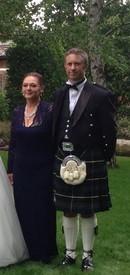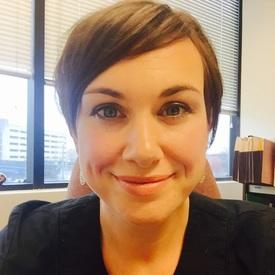How many calories are we supposed to be eating?

authorwriter
Posts: 323 Member
at 6 wks post-op? 10 wks? 16 wks?
I see my nutritionist tomorrow and I will ask her, but I'm curious how many calories people who are actively losing are eating? And maybe give a decade age range, such as 30s, 40s, 50s, etc. Because I'm eating 500 to 700 calories a day and the scale is doing weird things and I'm starting to freak myself out.
Are we required to actually eat? Can we just drink the protein shakes and call it a day? My sleeve (call her Brunhilda) is acting up and I'm lately thinking I prefer eating my protein ice cream and drinking the chicken soup flavored protein powder. Mostly because there's never a surprise and also because food just doesn't do much for me anymore.
I see my nutritionist tomorrow and I will ask her, but I'm curious how many calories people who are actively losing are eating? And maybe give a decade age range, such as 30s, 40s, 50s, etc. Because I'm eating 500 to 700 calories a day and the scale is doing weird things and I'm starting to freak myself out.
Are we required to actually eat? Can we just drink the protein shakes and call it a day? My sleeve (call her Brunhilda) is acting up and I'm lately thinking I prefer eating my protein ice cream and drinking the chicken soup flavored protein powder. Mostly because there's never a surprise and also because food just doesn't do much for me anymore.
0
Replies
-
At 6 weeks I was eating but still only getting soft foods and about 300 calories. Now I can get my 800 but generally about 600-700 daily. I am 44 and lose on average 12-15 lb monthly. I have had the occasional social outing indulgence and I have had a couple of stalls. Basically it all depends on your nutritionists requirements.0
-
I am 4 weeks out and eat 700 per day. We were told to try for 1000.0
-
On July 5th, I'll be 5 months out and try to keep my calories below 800, but usually below 700 a day, with 80g/protein, 30g/sugar. I believe I'll be at this level for a while. Am losing weight, slowly but consistently and am only counting weight loss since my actual surgery. I hope that by losing the weight slower I'll be able to better counter the effects of sagging skin by a lot of exercise - particularly on my upper arms (bat wings), thighs/hips and it seems to be working out for me.0
-
My surgeon gets you on solids fast because of what you are describing. All sorts of stomach weirdness and nausea. Solid food does more than nourish, it makes the gut function. Without bulk bloating, constipation, nausea and colic can become real issues not to mention malnutrition. We need the micronutrients that are in non processed food. Liquid calories are also slider calories. So in 6 months when your grehlin production in your stomach starts to return to normal and real physical hunger returns you can really go over your calories easily if you are drinking them. No feeling of fullness or satiety to slow you down. I eat between 750-950 cals a day. I am a 5'5" medium to small boned 45 yr old Caucasian female. My goal is 75 g of protein and 75 or less of carbs restricting all high glycemic carbs ( glycemic load >20). I will transition to 1450 at maintenance when I get to 125lbs. After the first 30-50 lbs the wt loss slows and you tend to lose, bounce up a few lbs then have a net loss 5-10 days later. Is that the scale weirdness you are describing? Because that is normal even when your calories didn't change your muscle to fat ratio did and that reshifted your water weight. Psychologically you may be on a manic high because you are losing weight really rapidly but if you are not developing the dietary lifestyle tools for the long run you may get in a pickle. There are some people who swing from medicating with food to anorexia where the severe control over food becomes their new medicating habit. It is a wonderful feeling when food just becomes food but don't lose sight of the big picture. The way your body feels and functions now will likely be different in a year or when you achieve maintenance. Good luck
 0
0 -
^^^^^^^ THIS!!!

And let me add that I am 5 months out, and I my scale is doing the "dance" described above. Here is how I look at it.... I need to eat this way the rest of my life (small portions, protein first, low carb) regardless of what the scale does--- so I need to get these healthy eating habits ingrained in me anyway. I am 44 years old, female, weigh 223 and shoot for between 850 and 1200 cals per day. I average 1050 over any 2 week period. It is working for me so far. :flowerforyou:0 -
I am three weeks out and aim for 1000 calories per day. As long as I focus on getting all the protein in first I do alright. 750 calories is working out to be comfortable for me right now, and it is a stretch to get in 1000 per day.0
-
I was instructed to "advance my diet" as per the schedule I was given, get at least 75g of protein per day and shoot for 1000-1200 calories during my loss phase. That said, I was doing about 600 calories the first month and had worked up to 1000 by about month 3 or 4. It WAS WORK to meet those goals in the beginning. I had to add in a schedule of high quality snacks, (cheese sticks, avocados, Greek yogurt) and protein supplements, to even get close the first couple of months. Once I began to exercise 5 days per week, I was able to maintain about 1200 calories per day, sometimes more, and still lose. I'm now 10 months out, nearing my goal and still losing. Today, I'm really glad I pushed myself to a bit higher calories early as it's helped to set my metabolism in the best place for long term success as I enter maintenance.0
-
I had my sleeve May 12, 2014.
I am shooting for 600-800 calories per day at this point.
Over the next year it will increase to 800-1000 per day as I was instructed.
My protein goal is 60-80g.
As I have moved on to the regular bariatric diet I have seen an increase in my intake.
I am trying hard to get back down to 600-800 until one year post-op.
You can review my profile to see my stats.
My advice is to follow what your clinic is telling you to do....everyone's case is different.
Keep going...we can do this.
-David0 -
I had mine in March and my nutritionist put me at 800. I eat about 900-1000 per day, but with my excercise often have a deficit of 300-500 daily. My goal is to have a deficit at the end of the week due to excercize. So- if I have an 1100 cal day because I ate half an advocado and some cheese, it's OK. I have a hard time getting in my fats while keep calories down. I have also been able to increase my muscle mass by 11% in the past six weeks- so the excercise has many benefits.0
-
I am almost 9 months out and I eat about 850 calories a day. I have been trying to up my calories, but it's been challenging since I still can't eat a lot at once, and I still have to eat by schedule because I don't really get hungry. I try to get 100-120 grams of protein a day because my protein was a little low when I had my last blood work, and my surgeon said to increase my protein intake. He didn't seem to think the amount of calories was an issue, he was more concerned with my protein intake and how I felt, and as long as I am feeling good he is happy. The rest of my blood work was excellent. I am sure I will have to increase my calorie intake over the next few months and definitely when I transition into maintenance.
As far as how many calories you are supposed to be eating, I think the best people to answer that would be your surgeon and nutritionist. Every surgeon has different guidelines!0 -
Thanks for the replies, everybody!
I saw the nutritionist. She says not to go over 600 calories. Said eventually, I may be able to get to 1,000 calories but not for many many months. She also said not to go over 80 grams of protein. She suggested 16 grams of healthy fats.
And I can finally eat raw veggies and salads, etc. Very happy about that.0 -
I'm with @Magopickle and @bikrck, great advice. During the first few months I was advised to ignore calories and focus on protein and liquid intake. My food plan transitioned from full liquid to full foods (including beef) over a 6 week period. The barriatric nurses from my hospital would check up on me to make sure I was getting the protein and liquids and was trying to move from Shakes to "chewing food" as scheduled. Transitioning to regular food is very important for overall health. If something does not sit well then put it to the side and try again in a week. By 8 weeks out I was eating all types of normal foods but continue to avoid complex carbs (Bread, Rice, Pasta).
At around 12 weeks I started to pay more attention to the MFP calories settings as a way to train habits for the future. MFP will not allow a setting lower than a "2 pound weekly loss" so I was ALWAYS under my daily requirements but I learned how to weigh, track and catagorize meals. Throughout this time frame I began exercising and continued to shred weight.
At 16 weeks I added a FitBit to my routine and linked the two apps together. At this point I started working with a physical trainer and attempted to eat back my exercise calories. My daily intake was well above 1,000 calories per day, my protein was close to 100 grams per day and I continued shredding weight.
I am now 9 1/2 months out, I have reached my weight goal and have MFP set for "Maintain". My daily base is 2,200 calories (47 year old male, 187 pounds) and most days I need to eat back 500 plus exercise calories. I still focus on Protein (4 -6 oz per meal) then veggies. I use various protein bars to help me eat back calories and do find it challanging to eat back everything on high exercise days. By incorporating exercise early on I have had great results with proportions. My pants size went from a tight 44" to a slim fit 34".
So I guess my answer to your question is; "You are supposed to be eating whatever your body needs to get healthy". As long as you track the food, choose healthy protein and veggies first and exercise you will have great results.0 -
garber6th, I am also 9 months out and have hit the 9 month stall. Have you experienced a stall or plateau and what amount of weight to you lose in an average month? I have been losing about 10 pounds a month until June and only lost 2:( It's scaring me.I am almost 9 months out and I eat about 850 calories a day. I have been trying to up my calories, but it's been challenging since I still can't eat a lot at once, and I still have to eat by schedule because I don't really get hungry. I try to get 100-120 grams of protein a day because my protein was a little low when I had my last blood work, and my surgeon said to increase my protein intake. He didn't seem to think the amount of calories was an issue, he was more concerned with my protein intake and how I felt, and as long as I am feeling good he is happy. The rest of my blood work was excellent. I am sure I will have to increase my calorie intake over the next few months and definitely when I transition into maintenance.
As far as how many calories you are supposed to be eating, I think the best people to answer that would be your surgeon and nutritionist. Every surgeon has different guidelines!0 -
garber6th, I am also 9 months out and have hit the 9 month stall. Have you experienced a stall or plateau and what amount of weight to you lose in an average month? I have been losing about 10 pounds a month until June and only lost 2:( It's scaring me.I am almost 9 months out and I eat about 850 calories a day. I have been trying to up my calories, but it's been challenging since I still can't eat a lot at once, and I still have to eat by schedule because I don't really get hungry. I try to get 100-120 grams of protein a day because my protein was a little low when I had my last blood work, and my surgeon said to increase my protein intake. He didn't seem to think the amount of calories was an issue, he was more concerned with my protein intake and how I felt, and as long as I am feeling good he is happy. The rest of my blood work was excellent. I am sure I will have to increase my calorie intake over the next few months and definitely when I transition into maintenance.
As far as how many calories you are supposed to be eating, I think the best people to answer that would be your surgeon and nutritionist. Every surgeon has different guidelines!
I have been very fortunate, I have not hit any stalls - yet. I am sure I will at some point. I am still losing about 10-12 lbs a month, but I am sure that will slow down too. Are you still tracking everything you eat? Getting enough protein? Are you exercising? Avoiding carbs?0
This discussion has been closed.











